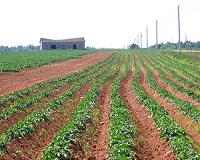 |
Buenos Aires (UPI) Feb 7, 2011 Argentine officials admitted deaths due to malnutrition among the country's poor of indigenous Latin American people and promised government action to minimize the problem. Reports of malnutrition deaths came as results of a study jointly carried out by researchers at London's Imperial College and the University of Harvard in Boston showed Argentina, Chile and Venezuela topped the list of overweight people in Latin America. Critics of President Cristina Fernandez de Kirchner earlier called for more vigorous measures to pursue the government's poverty reduction programs. The government faced criticism for not doing enough to ease poverty among the country's non-European population. Gov. Jose Manuel Urtubey of the northern province of Salta said in a television interview at least five children, mostly from indigenous communities, died of malnutrition in 2010 and officials recorded another death this year. Urtubey warned more malnutrition cases might be present in isolated indigenous communities. "Child malnutrition is a latent dramatic situation in the province of Salta," Urtubey said, although he pointed out conditions had improved compared to three years ago when more than 30 children died of hunger or malnutrition annually, MercoPress reported. Reports of the children's deaths were revealed by a non-government organization and passed on to the media. Fatalities included an 18-month-old toddler and a female child, 3, but their deaths were initially attributed to infections. A third case of another 18-month-old toddler, reported to have died due to "septic shock caused by malnutrition," lifted the lid on malnutrition deaths. The deaths caused uproar in Argentina's media. The Salta and Buenos Aires media quoted the father of one of the toddlers, who said he lost his child on a day when he returned from work in the woods to find there was nothing at hand that he could feed the children. "There are some days when we manage to have a meal and days when we don't," he told the media. "When Leandro died, on that day we had had nothing to eat." The northern town of Salta, close to Bolivia, has a population of 1.2 million with a significant number of indigenous communities that are exposed to malnutrition, disease and lack of community care. "We have control over 100.000 children in those communities but the latest situation indicates that our efforts are insufficient and there must be more vulnerable population which has no access to aid or support mechanisms," Urtubey said in the interview. The situation becomes worse in summer months when schools close and children are deprived of a hot meal provided by the schools each day. Critics said the school kitchens were underfunded and lacked clean water, as a result of which children frequently suffered from disease.
Share This Article With Planet Earth
Related Links Farming Today - Suppliers and Technology
 Toward Controlling Fungus That Caused Irish Potato Famine
Toward Controlling Fungus That Caused Irish Potato FamineWashington DC (SPX) Jan 21, 2011 Scientists are reporting a key advance toward development of a way to combat the terrible plant diseases that caused the Irish potato famine and still inflict billions of dollars of damage to crops each year around the world. Their study appears in ACS' bi-weekly journal Organic Letters. Teck-Peng Loh and colleagues point out that the Phytophthora fungi cause extensive damage to food ... read more |
|
| The content herein, unless otherwise known to be public domain, are Copyright 1995-2010 - SpaceDaily. AFP and UPI Wire Stories are copyright Agence France-Presse and United Press International. ESA Portal Reports are copyright European Space Agency. All NASA sourced material is public domain. Additional copyrights may apply in whole or part to other bona fide parties. Advertising does not imply endorsement,agreement or approval of any opinions, statements or information provided by SpaceDaily on any Web page published or hosted by SpaceDaily. Privacy Statement |